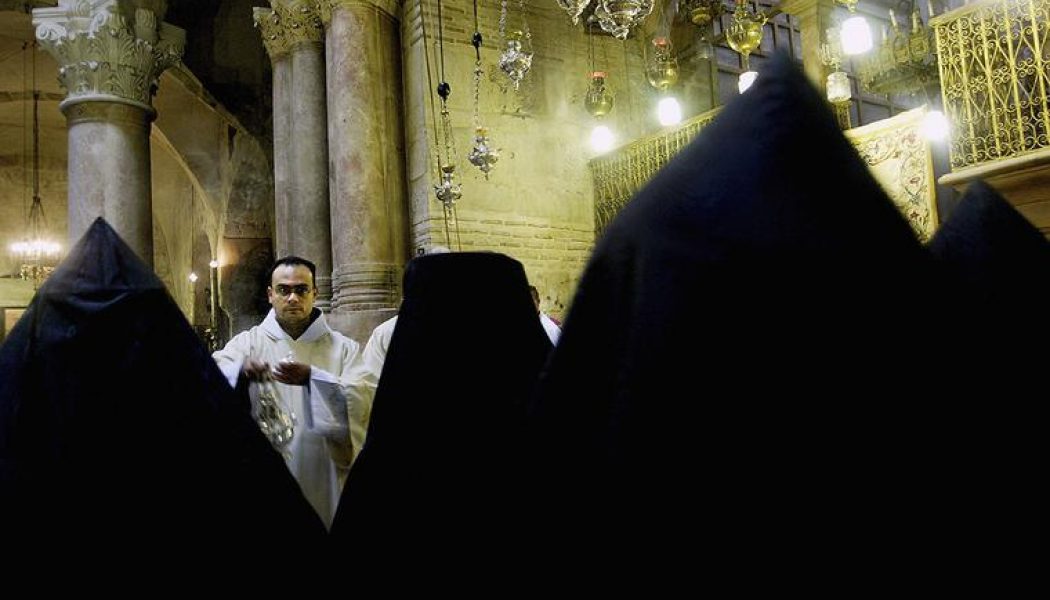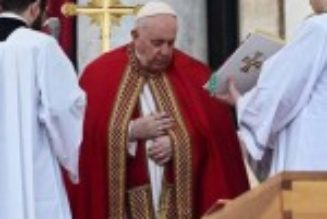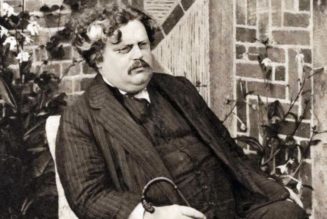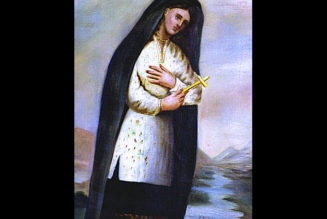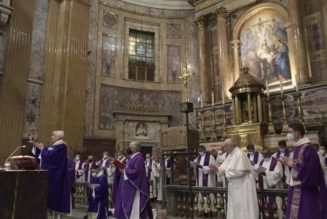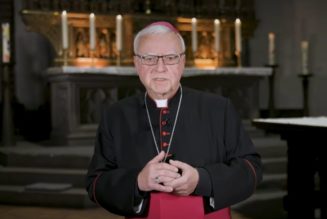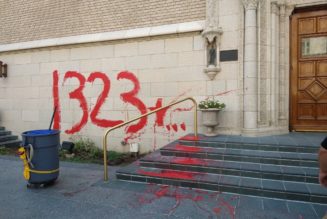
Popes lament the loss of a sense of sin. Pope Pius XII in 1950 wrote, “Perhaps the greatest sin in the world today is that men have begun to lose the sense of sin.”
Almost 65 years later, Pope Francis said essentially the same thing.
“When you lose the sense of sin, you also lose the ‘sense of the Kingdom of God’ and in its place,” the Pope said, “there emerges an ‘anthropological vision’ according to which “I can do anything.’”
While there’s more than adequate evidence to demonstrate the consequence of a loss of the sense of sin in peoples’ lives, I want to redirect the question to ask about the consequences of a loss of the sense of sin in the Church’s liturgy and devotional life. If lex orandi, lex credendi (roughly translated, how we pray expresses what we believe), then how does that impoverished liturgico-devotional sense of sin contribute to the larger loss of sin in peoples’ consciousness?
Let’s take some examples.
Canon 1250 speaks of “the days and times of penance for the universal Church are each Friday of the whole year and the season of Lent.” Yes, canon law is (or at least ought to be) in the service of good theology and not vice versa: law is a means to promote good principles. That said, when one counts the number of Catholic bishops in the United States with doctorates in canon law versus doctorates in sacred theology, I am realistic enough to know what engine drives that train.
We just finished Advent. Every year I get asked the question, “what happened to the penitential aspect of Advent?” The truth is its canonical status has been erased and, in consequence, its practical focus has been downplayed. Once upon a time, Advent “spiritual preparation” meant a focus on penance and conversion, usually expressed sacramentally. That meshed well with Isaiah’s and John the Baptist’s foci on penance and conversion.
Since Advent is now no longer canonically among “the … times of penance,” that focus is diluted. Advent “spiritual preparation” now often embraces any range of pious and “spiritual” thoughts (“Am I being consumeristic?” “Should I drop a coat off at the Catholic Charities shop?” “Did I take a star off the parish giving tree?”) rather than explicitly focusing on penance and conversion. This, in turn, attenuates the sense of sin.
Canon 1250 says “each Friday of the whole year” is a “day … of penance.” While the American bishops pay that notion lip service, it has been a dead letter for 55 years. It died in 1966, when the then USCC-NCCB privatized (and thus, in practice, negated) the communal penitential ethos of Fridays throughout the year. Catholics in the United States began de facto to observe the penitential character only of Lenten Friday.
Even when it comes to Lenten Fridays, some bishops provide views at the start of Lent that Catholics not necessarily sweat each and every Lenten Friday abstinence as long as they observe “all or a substantial number” of those Fridays: individual Lenten Friday cheeseburgers only become an issue when one never looks at the TGIF seafood or vegan menus all Lent long. Many bishops have also been quick on the draw to dispense even these minimums, be it allegedly for “the difficulty of obtaining some kinds of food” during COVID or if a diocesan St. Patrick’s Day falls on Friday, putting the kibosh on corned beef and cabbage.
Given such indulgent minimalism, any wonder why — repeated emphases on “prayer, fasting and almsgiving” notwithstanding, fast and abstinence have largely fallen by the wayside? Ideas, much less habits of penitential abstinence are not forged on a maximum of practice of seven days per annum, nor of fasting on two.
There used to be something in the Catholic calendar called “Ember Days” — three days of fasting, abstinence, and prayer in each of the four seasons of the year. There were also “Rogation Days” in the spring. Those days regularly and systematically inserted an awareness of sin and penance into Catholics’ lives. The 1969 Roman Calendar Reform delegated their observance to individual episcopal conferences which, in the United States, delegated them to individual bishops which, in practice, means they are another dead letter. (I would welcome comments from any readers who live in a diocese where those days are actually observed in any manner.)
Christians live in a stage of salvation history between the “already” Paschal victory of Christ and its “not yet” consummation in the Last Judgment. Paul could proclaim in faith, “O death, where is your victory, where is your sting,” yet one bets that the Roman executioner’s sword did have a bit of an edge to it. Without denying our Christian hope, American Catholicism seems almost Polyannish in the way it embraced the Mass of Christian Burial celebrated in white vestments with a kind of full-throated joyfulness that seems almost childishly oblivious to the sense of loss and bereavement that also marks those occasions. Coupled with a kind of naïve semi-universalism — Hell is a topic verboten, Purgatory rarely mentioned — the larger American cultural idea that “funerals are for the living, not the dead” eviscerates the Catholic idea of the need for prayer for the faithful departed while giving excuses for funerals to accommodate rather than interrupt survivors’ schedules. Do people no longer die in sins? Do survivors no longer need to reckon with their mortality? Is any of this grist for the funeral liturgy?
The USCCB allows a Votive Mass “for giving thanks to God for the Gift of Human Life” (again, celebrated in white vestments) for celebration on Jan. 22, the anniversary of Roe v. Wade. Should we give thanks for life? Yes. But the question is not whether we should but whether — in view of the legal and cultural ethos Roe has put in place — we do? The honest answer to that — socially, nationally, culturally — is “no.” Is this not a context demanding penance for what we have done to God’s gift of life — especially as Roe approaches the half-century mark and is likely to be the object of festal celebration by its votaries?
Lastly, for the past 10 months, a good part of the world has been on pandemic lockdown. Historically, Catholic theology and its liturgical expression has also seen in such disasters punishment for sin and opportunities to reckon with God’s Justice. But, in March, the Holy See promulgated a Votive Mass “in Time of Pandemic” that — in direct departure from liturgical history — excises any penitential note from the liturgy. The sole emphasis is on God’s protective care which, amidst this constantly upbeat note, almost evokes the question: “If God’s Providential care is so solicitous, why is there a pandemic in the first place?” The new Votive Mass might almost seem to paint a bizarre picture of God “co-suffering” with us while the big, bad pandemic rages out there, almost autonomously.
Almost 60 years of dubious and strained optimism has contributed to liturgical praxis that appears silent about and puzzled by the persisting reality of sin in general and my sinfulness in particular. I would argue that this theological naivete has also contributed to the contemporary loss of a sense of sin. The question is: do we persist on this road?
No doubt much of the liturgical establishment will adduce good reasons for why this practice or that policy made sense, and the usual default position of any institution — the Church included — is inertia. Without getting into all those individual justifications, however, I simply ask the impartial observer to consider one question. Has the cumulative effect of this trajectory objectively advanced weal or woe in the concrete spiritual lives of the faithful?
The Catholic Bishops of the United States recently issued a document probing the theological underpinnings (and vacuities) of contemporary hymnody, resulting in explicit recommendations about dropping certain ditties masquerading as sacred song from the repertoire. In the spirit of that document, I want to remind their excellencies that we need to jettison the ecclesiastical influence of Bobby McFerrin, because “Don’t Worry, Be Happy!” is neither a hymn nor a liturgical guideline.
Join Our Telegram Group : Salvation & Prosperity
